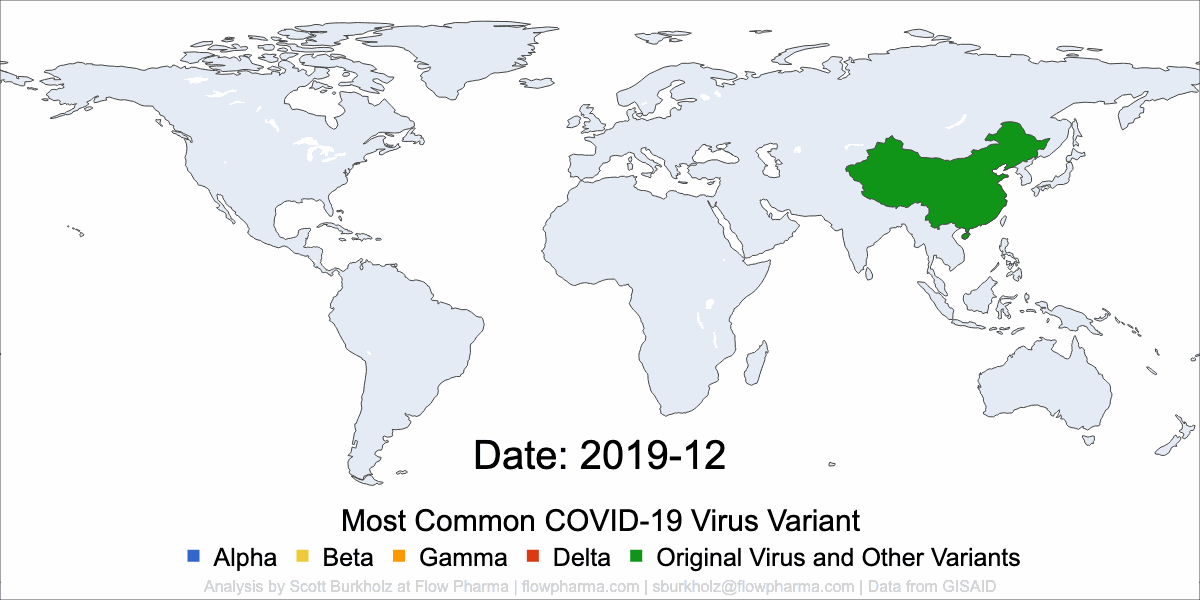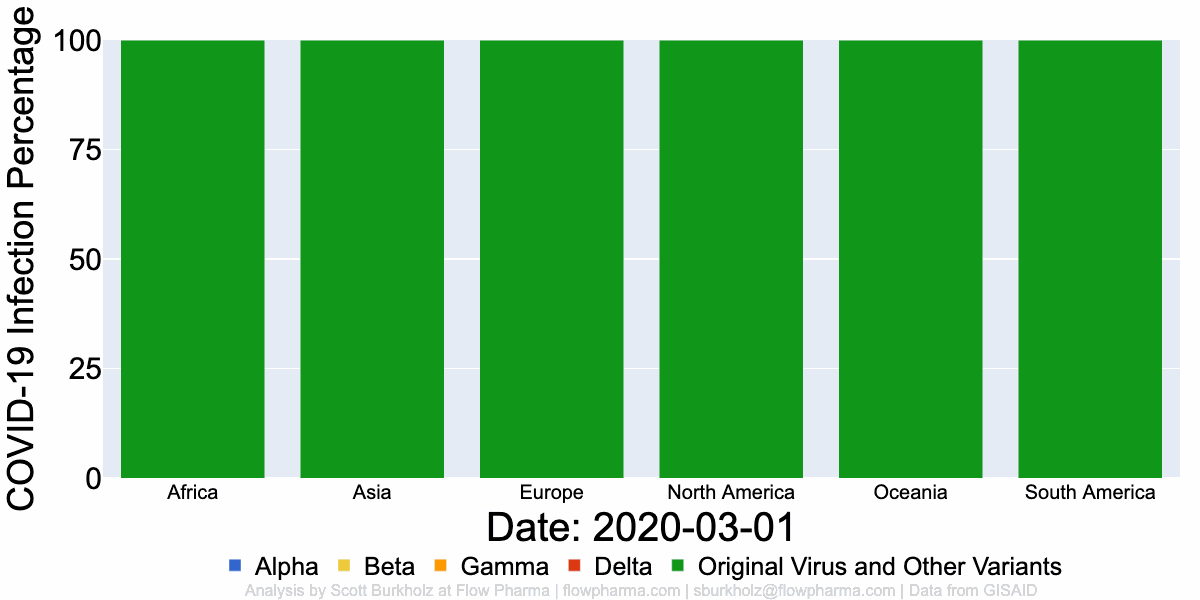COVID-19 has evolved continuously since late 2019 when it was first detected in Wuhan, China. The genomic sequencing results shown below reveal that the COVID-19 virus mutated slowly at first. Beginning late 2020, however, variants of concern including Alpha, Beta, Gamma, and Delta rapidly appeared, all with spike protein mutations. Spike alterations may influence viral binding to human cells, a key step in cellular entry and resultant COVID infection. These spike changes may also affect how well vaccine antibodies bind spike protein to restrict cellular entry, thus potentially altering COVID protection from spike-targeting antibody vaccines.
The increased fitness of Alpha, Beta, Gamma, and Delta allowed them to spread rapidly in 2021. As illustrated above, there has been a viral competition of sorts resulting in a dominant variant, Delta. Beta and Gamma variants had regional spread at their sites of origin in South Africa and Brazil. Alpha and Delta variants spread globally in mid-2021. Today, Delta is the most common variant and appears largely responsible for increased COVID case-rates during the second half of 2021.
There is no reason to expect this evolutionary path, the rising of new variants, will stop anytime soon. Current vaccines are almost exclusively focused on the mutating surface spike protein, and a breakthrough infections do occur. Fortunately, antibody vaccine responses have so far largely maintained protection from hospitalization and death. As the virus continues to compete and evolve, new approaches targeting the non-mutating inner viral proteins, such as the nucleoprotein, should be pursued. Targeting these non-mutating proteins should not drive evolution of new viral variants and could provide a path forward for ending the COVID-19 pandemic.


